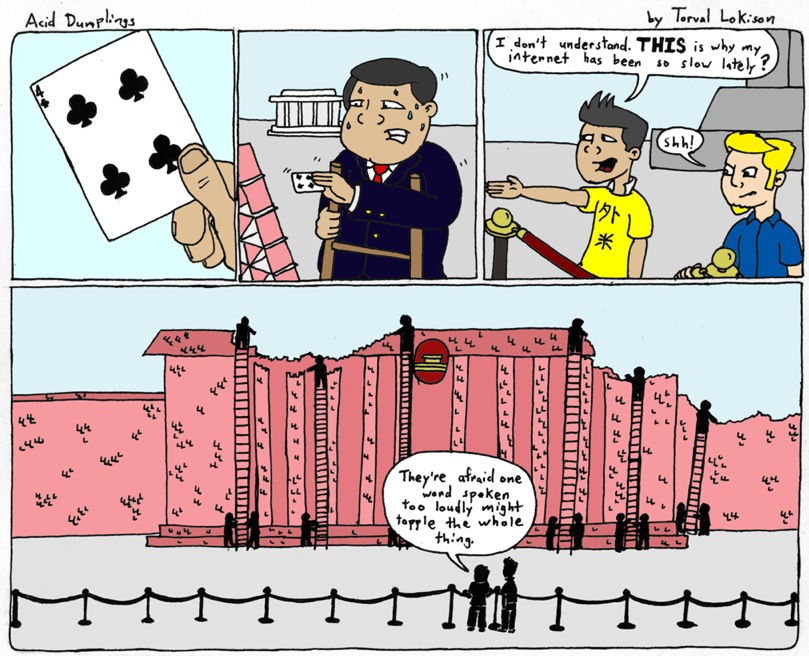
Acid Dumplings [37]

4 Responses to “Acid Dumplings [37]”
Leave a Reply
By Torval Lokison Comments: 4

 “One of The Worst Nights Of My Life”: The Disastrous Electric Castle Halloween Party In Tianjin [UPDATE]
“One of The Worst Nights Of My Life”: The Disastrous Electric Castle Halloween Party In Tianjin [UPDATE]
 The 2nd Annual Beijing Cream Bar And Club Awards, Where (Almost) No One Is Spared
The 2nd Annual Beijing Cream Bar And Club Awards, Where (Almost) No One Is Spared
 The Chinese Lack Creativity, As Definitively Proven By This List Of China’s Top Porn Search Terms
The Chinese Lack Creativity, As Definitively Proven By This List Of China’s Top Porn Search Terms
 Maya Moore Scores 53 Points In Game 1 Of WCBA Finals, Overshadowed By Fans Beating Up Referees [UPDATE]
Maya Moore Scores 53 Points In Game 1 Of WCBA Finals, Overshadowed By Fans Beating Up Referees [UPDATE]
 To Serve People: No One Loathes Porn Like China’s New Master Of The Dark Arts
To Serve People: No One Loathes Porn Like China’s New Master Of The Dark Arts
 Vignette Of A Compassionate China: Our Writer, In Distress, Finds Help At Every Turn
Vignette Of A Compassionate China: Our Writer, In Distress, Finds Help At Every Turn
 Jiang Zemin: How China’s Forgotten President Achieved a Cult Following and Meme Immortality
Jiang Zemin: How China’s Forgotten President Achieved a Cult Following and Meme Immortality
 In Beijing, 20 Million People Pretend to Live :: 在北京,有2000万人假装在生活 (full translation)
In Beijing, 20 Million People Pretend to Live :: 在北京,有2000万人假装在生活 (full translation)


Not a comment, but a question:
What is the significance of the “Four-of-Clubs” card in the hand of the clearly nervous geezer standing on the ladder propped against the Great Hall of the People? I regret I do not have the knowledge of Mandarin to see what must be a homophone or other coded reference.
Well, “four” in Chinese is “Si”. Chinese tend to have a superstition about it because it is a homophone for “Death”. Maybe it’s something to do with that. Does the “club” symbol stand for anything?
I do not know if this is a sensible serendipity, but my wife, who is Japanese, just asked me what it was all about and, as with many Japanese, she substituted an “r” for the “l” in “club,” which yielded a sound not unlike the word “crab.” Of course this could easily be taken as shorthand for “river crab,” and thus the Party of the Harmonizers, as it were, which in this context, makes perfect sense.
I realize this is all a bit off the wall, but it does work, for all of that.